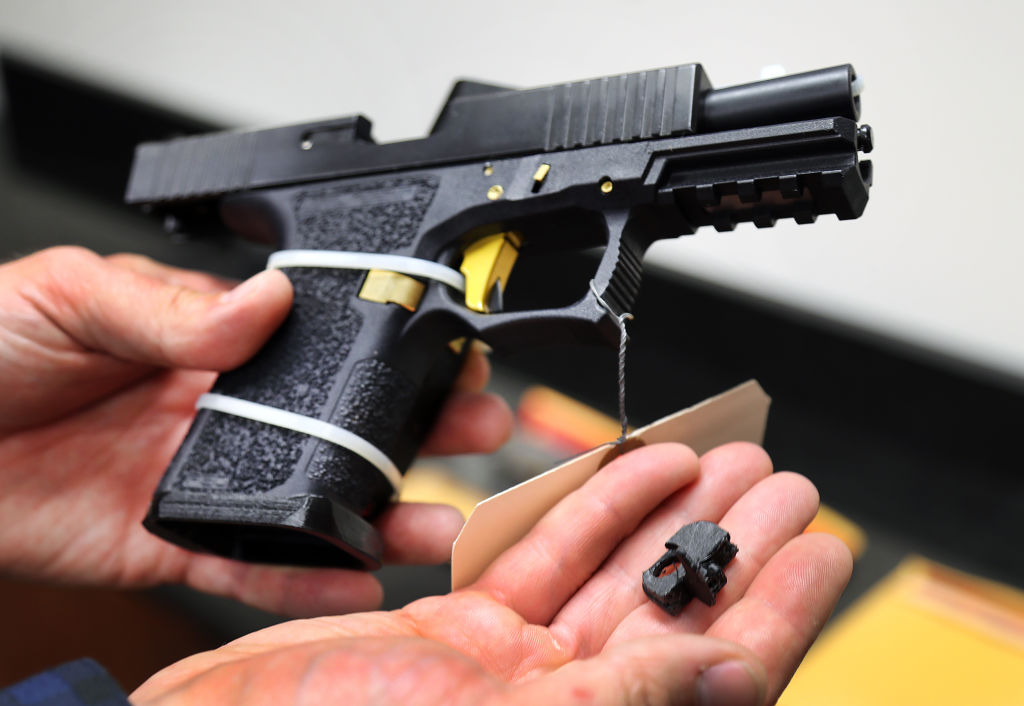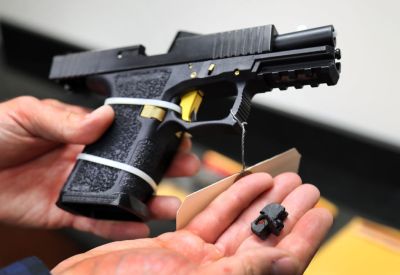An Instagram post calling attention to legislation passed by Mississippi’s House of Representatives in the wake of the death of a sheriff’s deputy claims that “Glock switches” turn semiautomatic guns into fully automatic weapons. The claim is true.
The Supreme Court recently heard arguments over whether to uphold a federal ban on bump stock accessories implemented by former President Donald Trump. Gun-control activists want the court to rule that bump stocks can be categorized as machine guns—defined legally as “any weapon which shoots, is designed to shoot, or can be readily restored to shoot, automatically more than one shot, without manual reloading, by a single function of the trigger”—because they make it easier for users to utilize the recoil of a firearm to fire rounds at a near-automatic rate. But guns with bump stocks are still semiautomatic weapons—the trigger must be compressed each time they fire, even if that compression is assisted by a bump stock.
Glock switches, however, are a different story. This device—a type of automatic sear—can actually convert a semiautomatic handgun into an automatic one. In a firearm, the sear—as part of a larger trigger mechanism—is responsible for holding the hammer, striker, or bolt of the gun in place until enough pressure is exerted on the trigger. When an automatic sear is in place, the weapon’s trigger bar is prevented from catching its firing pin, allowing multiple rounds to be fired without additional pulls of the trigger.
The Instagram post refers to Mississippi’s House Bill 903, which prohibits the manufacture and possession of “machine gun conversion devices” and was passed on Friday, before being sent to the Mississippi Senate for review. The bill was prompted by the death of George County sheriff's deputy Jeremy Malone, who was shot with a handgun modified with a “Glock switch.”
The bill defines a machine gun conversion device as any device that is designed or intended to convert a semiautomatic firearm into a weapon that can fire more than a single shot automatically by a single function of the trigger. Though an explicit ban on devices like Glock switches was not previously part of Mississippi state law, their possession is already illegal at the federal level. Under 26 U.S. Code § 5845(b), devices designed to allow for the automatic firing of weapons are themselves considered “machineguns,” which are unlawful to possess or transfer, with very few exceptions, under 18 U.S. Code § 922(o)(1).
If you have a claim you would like to see us fact check, please send us an email at factcheck@thedispatch.com. If you would like to suggest a correction to this piece or any other Dispatch article, please email corrections@thedispatch.com.







Please note that we at The Dispatch hold ourselves, our work, and our commenters to a higher standard than other places on the internet. We welcome comments that foster genuine debate or discussion—including comments critical of us or our work—but responses that include ad hominem attacks on fellow Dispatch members or are intended to stoke fear and anger may be moderated.
With your membership, you only have the ability to comment on The Morning Dispatch articles. Consider upgrading to join the conversation everywhere.